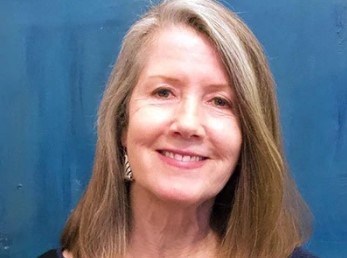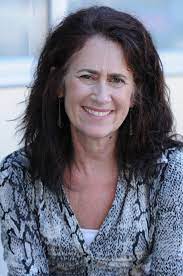Stoller Lecture 2022: On Revisiting Robert Stoller’s “Telepathic Dreams?”
March 17, 2022, 7:45 - 10:00 PM
Pacific Time
This meeting will take place online via Zoom. Once you register, you will receive an email with the link and more information.
*** Registration will close at 5:00 PM on the day of the event. No registrations are possible after this time, no exceptions.
All times listed are in Pacific Time (PST) unless otherwise noted
New Center for Psychoanalysis
presents
The 2022 Robert J. Stoller Lecture: On Revisiting Robert Stoller’s “Telepathic Dreams?”
Karen Peoples, PhD | Mary Tennes, PhD
In 2001, the Journal of the American Psychoanalytic Association published a remarkable paper by Elizabeth L. Mayer in which a previously unpublished paper by Robert Stoller (1927-1992), written in 1973, was presented in its entirety with the story of why Stoller withheld it from publication in his lifetime. Its focus was a series of telepathic dreams which Stoller found stunning; however, he was advised to avoid making them public for fear of his reputation being harmed. Almost three decades later, Mayer brought Stoller’s paper into the light and takes up the question of whether such analytic experiences more generally can be examined rather than hidden. She advocates for “freer dialogue” and exploration as well as “carefully controlled experimental research on anomalous mental phenomena.”
The 2022 Stoller Lecture will be presented by two Bay Area psychoanalysts whose work has focused extensively on telepathic communication. Dr. Tennes will explore the rich history of telepathic communication within psychoanalysis and, in particular, address the fear that has often surrounded its disclosure in the analytic world. She will take up the question of why this territory becomes so threatening and will look at what it means to find a language and an orientation that can encompass the uncertainties and paradoxes at the heart of psychoanalytic work. Dr. Peoples will contextualize telepathic communication within the spectrum of non-ordinary states of consciousness, examining their long historical arc, their current relevance for psychological health, and the need to expand models of the unconscious within psychoanalysis.
Learning Objectives
As a result of attending this session, participants should be able to:
- Summarize the frequency with which telepathic communication occurs in psychoanalytic work
- Identify historical fears and biases against the possibility of telepathic communication and the reasons for such anxieties
- Discuss different theoretical perspectives on telepathic communication within psychoanalysis
- Describe ways of working clinically with telepathic communication when it occurs in the psychoanalytic relationship
Presenter and Discussants
 Karen Peoples, PhD, is a personal/supervising analyst and faculty at the Psychoanalytic Institute of Northern California and faculty at the San Francisco Center for Psychoanalysis. She practices in the San Francisco Bay Area. She has published and presented on numerous analytic topics, including incest and social trauma, uncanny unconscious communication, transcendent and traumatic forms of emptiness, and unconscious bodily communication.
Karen Peoples, PhD, is a personal/supervising analyst and faculty at the Psychoanalytic Institute of Northern California and faculty at the San Francisco Center for Psychoanalysis. She practices in the San Francisco Bay Area. She has published and presented on numerous analytic topics, including incest and social trauma, uncanny unconscious communication, transcendent and traumatic forms of emptiness, and unconscious bodily communication.
 Mary Tennes, PhD, is a psychoanalyst in private practice in Oakland as well as a supervising and personal analyst and faculty member at the Psychoanalytic Institute of Northern California. She has a long-standing interest in psychoanalysis and the uncanny, which has been a central focus in her teaching and publications. Currently she is also chair of Faculty and Curriculum at PINC, where her focus is on the integration of an awareness of diversity, equity and inclusion into the training of analytic candidates.
Mary Tennes, PhD, is a psychoanalyst in private practice in Oakland as well as a supervising and personal analyst and faculty member at the Psychoanalytic Institute of Northern California. She has a long-standing interest in psychoanalysis and the uncanny, which has been a central focus in her teaching and publications. Currently she is also chair of Faculty and Curriculum at PINC, where her focus is on the integration of an awareness of diversity, equity and inclusion into the training of analytic candidates.
Target audience: Psychoanalysts, Psychiatrists, and Community psychotherapists
2.0 CE/CME Credits
General registration $40 | Students and Clinical Associates $20
"How do I get my CE/CME Credit?"
- Pre-Register below
- If you are registering for the first time you will receive a welcome email. You must follow the directions in this email to complete your registration in order to access your certificates.
- Sign in and sign out during the event (by typing your full name into the chat). This is how we record your attendance at the event.
- Wait 3 business days
- Download your Certificate on the NCP website
CONTINUING EDUCATION CREDIT
IMPORTANT DISCLOSURE INFORMATION FOR ALL LEARNERS: None of the planners and presenters for this educational activity have relevant financial relationship(s)* to disclose with ineligible companies* whose primary business is producing, marketing, selling, re-selling, or distributing healthcare products used by or on patients.
*Financial relationships are relevant if the educational content an individual can control is related to the business lines or products of the ineligible company.
-Updated July 2021-
PHYSICIANS: This activity has been planned and implemented in accordance with the accreditation requirements and policies of the Accreditation Council for Continuing Medical Education (ACCME) through the joint providership of American Psychoanalytic Association and The New Center for Psychoanalysis. The American Psychoanalytic Association is accredited by the ACCME to provide continuing medical education for physicians.”
The American Psychoanalytic Association designates this Live Activity for a maximum of 2 AMA PRA Category 1 Credit(s)™. Physicians should claim only the credit commensurate with the extent of their participation in the activity.
PSYCHOLOGISTS: The New Center for Psychoanalysis is approved by the American Psychological Association to sponsor continuing education for psychologists. The New Center for Psychoanalysis maintains responsibility for this program and its content. Psychologist must report CE credits directly to MCEP using this document to verify attendance. Please note that a Psychologist must attend the CE program in its entirety in order to receive credit.
SOCIAL WORKERS, MARRIAGE and FAMILY THERAPISTS (LCSW, LMFT, ASW, IMF, LEP, LPCC, PCCI): The New Center for Psychoanalysis is a continuing education provider that has been approved by the American Psychological Association, a California Board of Behavioral Sciences recognized approval agency
